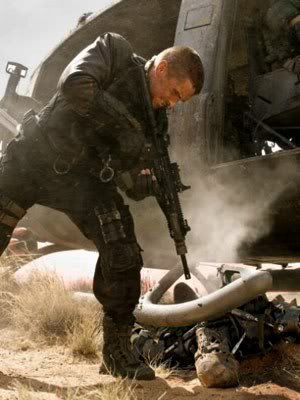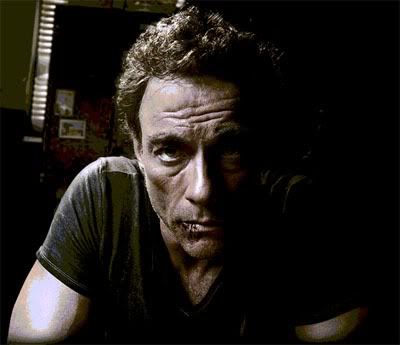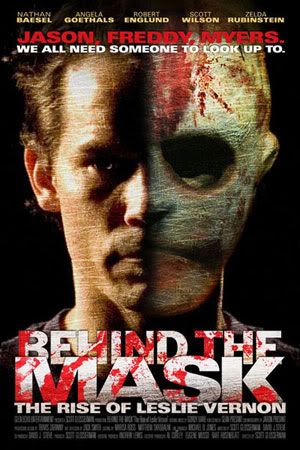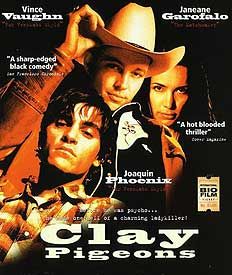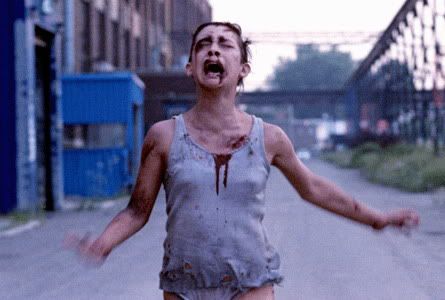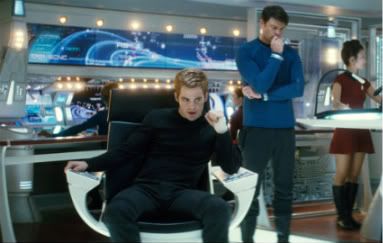
In doing press for his new movie, The Girlfriend Experience, director Steven Soderbergh summed up the theme in one sentence: "Everything in life is a transaction."
I remember back in 2000 going around with my parents when they were in the market for a new house. Part of the process involved signing on with a real estate agent. My parents picked Rosie, a nice enough lady in her 40s with shalaqued lips, a no-nonsense hairdo, a permanent smile, and a penchant for pantsuits and dangly earrings.
She was there ostensibly to represent my parents' interests, but my Dad (a suspicious guy at the best of times) very soon noticed that she would only show them houses near or at the very top of their stated price range. My dad began insisting she broaden out in the choices she was presenting to them. She did so reluctantly, and when my parents finally settled on a place that was more in the middle of what they were looking to pay, she tried -- not quite forcefully, but with an unmistakeable air of disdain -- to talk them out of it.
Her motives were clear; the more my parents spent, the higher her commission.
What I found interesting then -- and what I started thinking about while watching The Girlfriend Experience -- was Rosie's approach. We knew her for a sum total of probably three weeks, but she acted as though she was an old family friend. She tried to flirt with my dad (and, awkwardly, with me), talked quilting with my mom, told us all about her husband and kids. But she was, frankly, a bit of a shark. I don't blame her for it. She had a job to do.
That line between salesmanship and a sort of icky false intimacy is one I'm sure we've all experienced at some point. Whether when buying a car, dealing with a waiter or waitress working just a little to hard for his/her tip, signing up for a gym membership, or during any other number of small day-to-day transactions, we've all been there. Hell, most of us have been, at least once or twice, on the other end of that equation.
But where does it end? Where's the line between a business relationship and a "real" relationship? Where does manipulation of someone for a particular reward end and true intimacy begin?
At what point, in other words, do we become whores?
That's the obvious (and, frankly, not very original) theme of The Girlfriend Experience, and Soderbergh tries to get at it by centering his story (for want of a better word) on an actual prostitute. Chelsea (Sasha Grey) is a high-class escort, one of the really expensive ones who provides not just sex but companionship (the "girlfriend experience" of the title). She listens to you bitch about the economy. She strokes your hair and tells you how much she enjoys seeing you. She asks after your wife and kids. She makes careful note of your likes and dislikes, and is sure to agree with you no matter what you say. She stays the night and lets you buy her breakfast in the morning. And she leaves with an incredibly fat envelope stuffed full of cash.
Chelsea is a blank slate, and for most of the movie I (probably unfairly) chalked this up to the assumed limitations of the lead. Grey has made quite the name for herself in the porn world as a sort of existentialist, Godard-worshipping, philosophy-quoting, self-empowered sex goddess. All those things are great, but they do not necessarily equal "great actor." What we get here is a cold characterization that, for the first three quarters of the movie, seems to have all the psychological depth and emotional vitality of a piece of well-spoken lawn furniture.
The movie is presented through a series of transactions, whether they be Chelsea entertaining a client or trying to get help building her website, her personal trainer boyfriend Chris (Chris Santos) selling fitness sessions, various job interviews, business proposals, or Chelsea's slightly hostile lunch with a journalist. These transactions don't stop at the front door. Every ostensible moment of intimacy between Chelsea and Chris seems as hard and self-directed as her numerous trysts. Even Chelsea's dinner with a more experienced escort friend and Chris's bar conversation with a chauvenistic buddy seem frought with all sorts of competition and undercurrents of callous self interest. These negotiations reach their nadir when Chelsea is talked into servicing an "erotic connoisseur" (an incredibly creepy Mark Jacobsen; you can seriously almost smell the fumes coming off of him) in exchange for a good review on his website. The end result of this last is grimly predictable.
So, of course, Soderbergh is saying that, in the end, we've all got a bit of the whore in us. Fine. Point taken. The obvious (and -- again -- not very original) question becomes: what's so different, then, about Chelsea and what she does for a living?
Soderbegh puts this all together in a loose, achronological style reminiscent of a not-so-busy 21 Grams. Scenes are presented out of order. The tail of one scene does not necessarilly have anything to do with the next. A climax might come twenty minutes before the setup. This approach is interesting, but borders on gimmicky and can be incredibly frustrating since there's so little initially to grasp onto emotionally. Who are these people? And why should I care?
Soderbergh is not a director I tend to get all that excited about. There's a coldness to his work that I just don't find very appealing. As much as I respect him, I almost never really enjoy his movies. The Girlfriend Experience is no different, and Soderbergh's use of Michael Hanake-esque wide shots and uninflected long takes adds to the overall chilly and analytical tone. I can't say I was ever bored, exactly, but I was not really all that engaged.
So I was all prepared to dismiss The Girlfriend Experience as another one of Soderbergh's little formalist experimentations and Grey as an interesting but not all that promising mainstream actress. But then -- just as I was checking out -- they sank the hooks in. I have to give them credit. They were one step ahead of me the whole time, and when toward the end we start to see a few cracks in Chelsea's perfectly composed facade and the movie takes a couple quick (and thankfully unmelodramatic) turns, the cumulative effect of all those previous transactions lands a surprisingly devastating blow. Just seeing Grey finally laugh, much less cry, sort of took my breath away. I was not prepared for that, and I salute them for it. They got me.
Soderbergh claimed in an interview (I don't remember which one, unfortunately) that he did not come into The Girlfriend Experience with any preconceived notions about the escort world, and that he doesn't judge Chelsea for what she does. That sounds nice, but I'm not sure I really buy it. I'm not sure it's really possible, in our culture, to not judge either Chelsea or Grey for their respective careers, no matter how progressive and hip we want to think we are. I certainly did. Even Chris, in the heat of an argument, resorts to calling Chelsea a "hooker." Soderbergh may not want us to think it's him calling her a hooker...but, really, it is. Chelsea may be no different, ultimately, than any of the other uber-capitalist characters in the movie, but where she ultimately ends up is sort of where you would expect her to given her livelihood. No new ground paved there.
Overall I can't say this is a great movie, but in the end it was a pleasant surprise. Grey has apparently just directed her first porn movie (called, if you're interested, The Fuck Junkie), so it doesn't seem as though she's leaving that world behind any time soon. That's fine, but I'd like to see her take another crack at mainstream film down the road. She's got some chops.
It's worth mentioning, by the way, that there's no actual sex in this movie, and only the briefest seconds of nudity. So don't go in expecting to get your jollies off, unless you're into lots and lots of talking.
